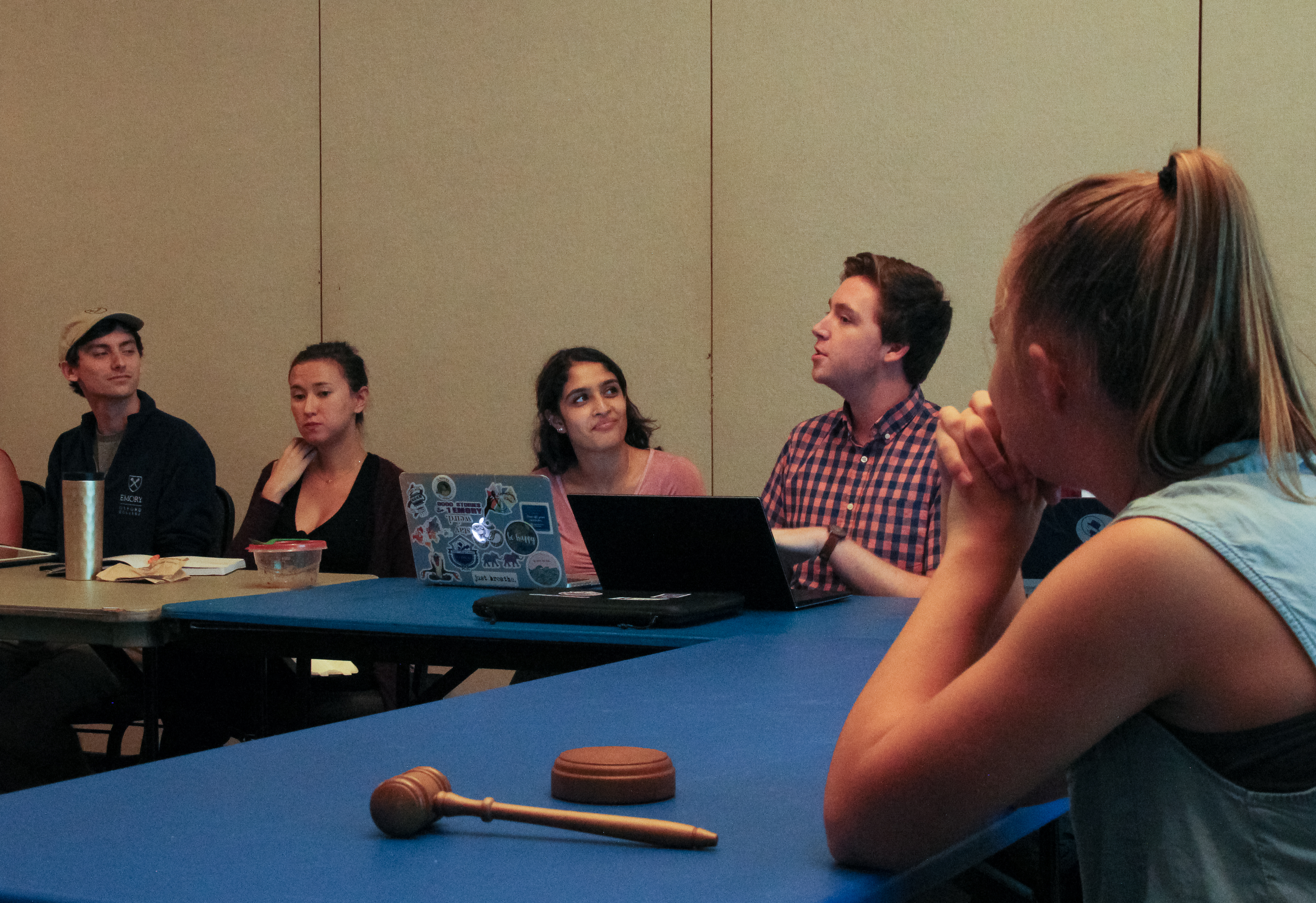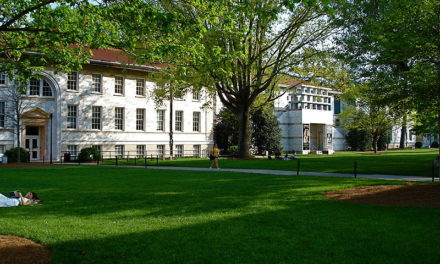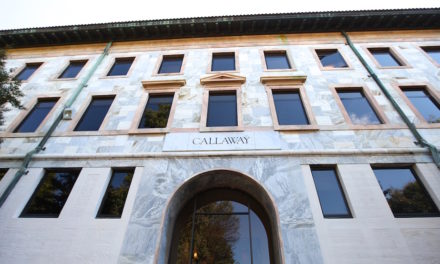Students gathered in Cannon Chapel on Wednesday for Amnesty International’s annual Hunger Banquet to learn about global food insecurity.
Food insecurity means one does not know from where or when his or her next meal will come.
United Nations Children’s Fund (UNICEF) and South Asian Health Initiative (SAHI) co-hosted the Banquet with Amnesty this year.
The Banquet was introduced and facilitated by College junior and Amnesty President Danielle Pitrone, College senior and Amnesty Vice President Alizeh Ahmad, College junior and Amnesty treasurer Tess Oetter and College junior and Amnesty events chair Chandini Viernjan.
Some students said they were surprised when, at the event, each attendee was given a card that, along with a name, identified them with a gender, homeland and profession. Each card was also labeled either “low income,” “middle class” or “upper class.”
Students labeled “upper class” sat at a table with a tablecloth and were allowed to eat freely. The “middle class” group was allowed to sit at a table as well; however, their meal consisted of rice, beans and water. The “lower class” group, on the other hand, sat on the floor and was only allowed rice and water.
The lower class group was later identified as representing 50 percent of the global population’s poverty level.
In the discussion that followed, students from the “lower class” group said they felt cheated and the “upper class” group said they felt guilty for eating so well next to their peers who could not.
According to Pitrone, the event is meant to give students a one-on-one experience with hunger that they would not get from reading about it.
This demonstration in food insecurity was addressed throughout the banquet as everyone broke into groups to discuss the issue of food insecurity, why it exists and what can be done about it.
After the discussion, everyone was allowed to eat.
Students also watched a documentary titled “JAMnesty Hunger Banquet,” created by College senior Cara Sandels, which showed photos and statistics of hunger and food insecurity around the world.
The video communicated that hunger is not due to a lack of food, but rather an unequal distribution of food.
In fact, the video informed students that the world currently produces more than enough food to feed everyone.
College senior Niko Patel said this issue is important to him as his family is from India, where he has seen people struggling with food insecurity firsthand.
“It was amazing, very well done,” Patel said of the event, adding that he learned the extent to which food affects everything in our lives.
College senior and Co-President of UNICEF Nicole Benjany was also impressed by the event, stating that as a student it is easy to become overwhelmed in life, and it is important to take time to think about others around the world.
Amnesty International meets Monday nights in Callaway C101 at 7:30 p.m.
– By Naomi Maisel
The Emory Wheel was founded in 1919 and is currently the only independent, student-run newspaper of Emory University. The Wheel publishes weekly on Wednesdays during the academic year, except during University holidays and scheduled publication intermissions.
The Wheel is financially and editorially independent from the University. All of its content is generated by the Wheel’s more than 100 student staff members and contributing writers, and its printing costs are covered by profits from self-generated advertising sales.





